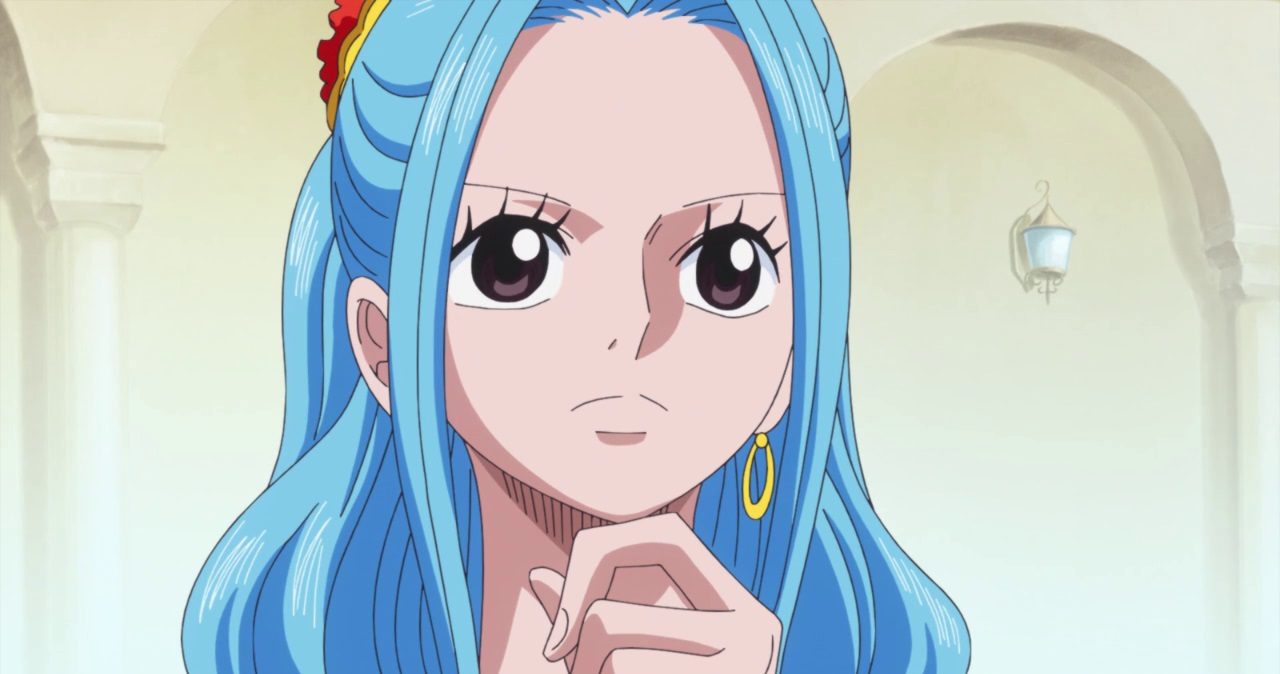Unpacking ‘One Piece’s complicated casting decision to erase Alabasta’s Egyptian roots

One Piece likes to assign real-world places to its fictional characters and settings, to various degrees of seriousness. When asked to assign the Straw Hats real-world nationalities, mangaka Eiichiro Oda said Brazil for Luffy, Sweden for Nami, and “Africa” for Usopp.
There’s logic behind these decisions (to varying degrees of success/offensiveness), but Oda’s decision-making process was clearly breezy.
But there’s other situations in One Piece where Oda makes his real-world inspirations incredibly deliberate. One classic example of that has always been Alabasta—which some fans spell “Arabasta” because of the dual nature of the Japanese “r.” Oda himself has said that Ancient Egypt was the inspiration for Alabasta.
The primary characters of Alabasta are the “Nefeltari/Nefertari” family, named after Nefertari Meritmut, who is considered one of the great queens of Egypt. Alabasta is a desert country. People ride camels. The clothes, the architecture, the existence of hieroglyphics … all of it is very coded to Eygpt. There’s even mention of specific Egyptian foods like kunafa and mulukhiya.
An official book from 2021 called Ruburu One Piece also points out the multiple architectural similarities between, mostly, the Alabastan city of Alubarna and the Indian city of Jodhpur. Specifically, there are some onion-shaped domes which bring to mind the Mughal architecture of the Taj Mahal.
So it’s not that India had no influence on Alabasta, but rather, Indian architecture added additional color to Alabasta’s primary influence, ancient Egypt—which is why some of the One Piece fandom turned their heads when Tomorrow Studios decided not to cast actors of Egyptian descent for the live-action One Piece’s Alabasta leads, but actors of Indian descent.
Complicated feelings
Last week, Netflix and Tomorrow Studios rolled out several major casting announcements for the second season of One Piece. Primary among them was Cobra, the king of Alabasta, who will be played by Indian-American actor and Heroes alumni Sendhil Ramamurthy. Nefeltari Vivi will be played by Bridgerton‘s Charithra Chandran, who is Indian-British.
I want to make perfectly clear up front that, based on skill and vibes alone, I think these are great choices. I also have no interest in judging or shaming them for taking their roles. I spent 2006 to 2010 having a huge crush on Sendhil Ramamurthy’s character Mohinder in Heroes (at least, until he got literally slimy in the last season, which was one of many confounding decisions made that season). On a very selfish level, I’m upset that his return to my pop cultural digest cannot be a more joyous occasion.
It’s impossible to see these castings, which prioritize Alabasta’s minimal Indian ties over their incredibly prominent Egyptian ties, and divorce the decision from the larger context of the world. Ramamurthy’s casting was announced around the same hour that undecided delegates were hosting a press conference in Chicago after the Democratic National Convention refused to give airtime to a Palestinian or Palestinian-American speaker.
Earlier that same week, many fans took note that Tomorrow Studios’ CEO, Marty Adelstein, signed a petition for the Emmys to revoke their nomination of a documentary called “I’m Bisan From Gaza and Still Alive.” (The petition claims that the filmmaker, journalist Bisan Atef Owda, has ties to a terrorist organization. NATAS replied in a public letter that it researched the claims and could not find evidence to support them.) Someone familiar with the One Piece live action reached out to clarify that Adelstein did not have a say in casting, in neither season 1 nor 2.
Alabasta is, on its face, a story about an outside force coming in and wanting to take over a country, and the struggle of the people of that country for control over their resources and livelihoods. And if you’re making a live-action adaptation, it feels meaningful that Alabasta is coded to Egypt, and that in 2011, Tahrir Square in Cairo became the focal point of the pro-democracy Arab Spring protests.
Granted, Alabasta serialized before the Arab Spring. But the live action is being made long after. And it’s occurring in an environment where, elsewhere in the Arabic world, nearly 70 Palestinian filmmakers have signed their own letter that accuses Hollywood of “dehumanizing” Palestinians on screen.
It’s not like they cast a Brazilian actor for Luffy. The wonderful Iñaki Godoy is Mexican, and no one complained, nor should they. But the flimsy strength of Luffy’s ties to Brazil and the very solid ones of Cobra and Vivi’s ties to Egypt are on very different levels.
Who is represented matters
It’s hard not to zoom out from the situation and feel like someone at Tomorrow Studio made the deliberate call to separate Alabasta from Egypt and the Arab world in an effort to “depoliticize” One Piece. But here’s the thing: One Piece is a very political story, as the adaptation has already illustrated they know full well with how they depicted Arlong in season 1.
“Depoliticizing” something like this only means you’re politicizing it in a different way. This was a very critical moment for some positive representation that could have done actual, palpable cultural good. And it would’ve given people some much-needed joy when, at every possible juncture, American culture has gotten into the nasty habit of belittling its Arab population—for decades (listen to the new season of Serial).
It’s exceedingly disappointing that Tomorrow Studios chose to turn away.
Have a tip we should know? tips@themarysue.com